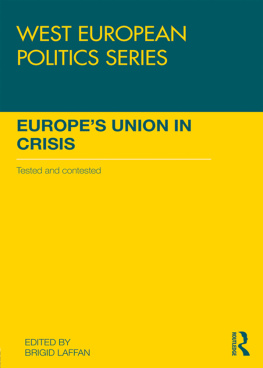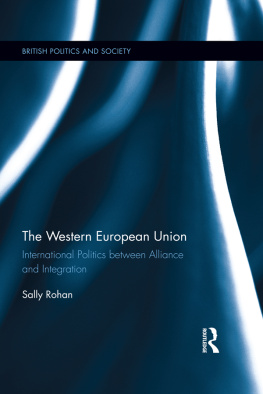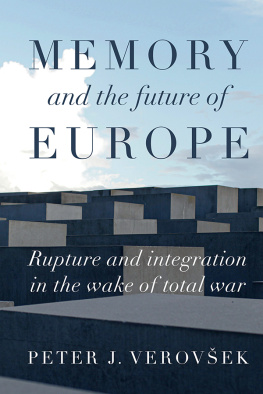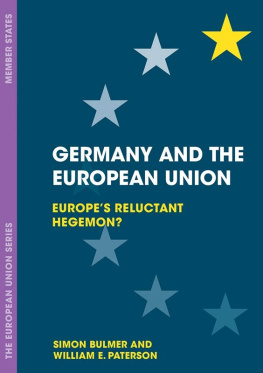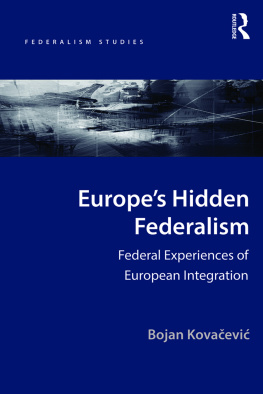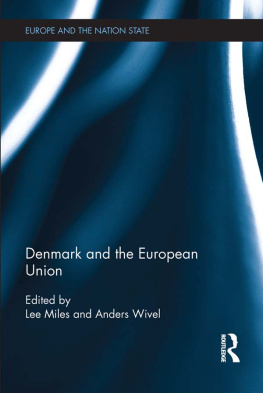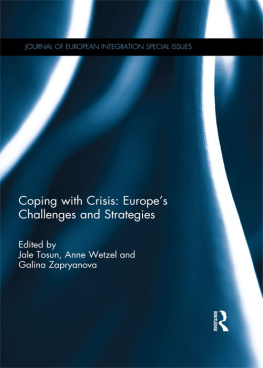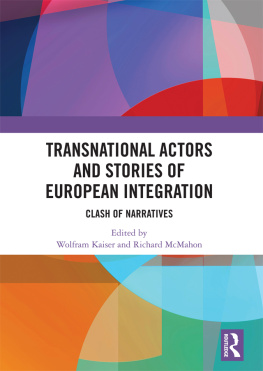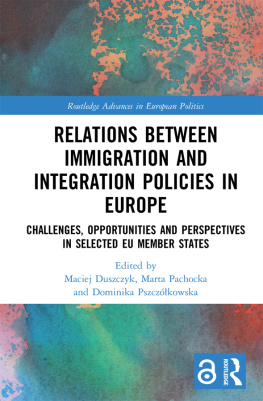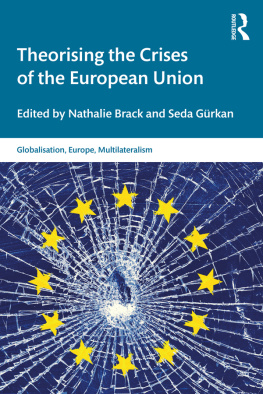Europe's Experimental Union
Europe's Experimental Union brings a multidisciplinary perspective to bear on the very topical issue of integration; uniting political, sociological and economic viewpoints, it moves beyond the sterile either/or debates on the nature of integration in conventional analyses.
Brigid Laffan, Rory O'Donnell and Michael Smith construct a threefold analytical framework based on the recognition of the European Union's interconnectedness and contingency; the complex relationship between territory, identity and function; and a sensitivity to the ties and tensions emerging in the process of integration itself. They identify four key ties and tensions: between states and markets; between the universe and its wider global environment. The second part of the book has been designed to explore the different ties and tensions that fashion integration itself.
The authors conclude with a characterisation of the as a harbinger of trends in political and economic order, locked as it is between modernity and postmodernity.
Brigid Laffan is Jean Monnet Professor of European Politics in the Department of Politics at University College Dublin. She is the author of a number of books including Integration and Cooperation in Europe (also published by Routledge). Rory O'Donnell is Jean Monnet Professor of European Business at University College Dublin. Michael Smith is Jean Monnet Professor of European Politics and Head of the Department of European Studies at Loughborough University.
Europe's Experimental
Union
Rethinking integration
Brigid Laffan, Rory O'Donnell and
Michael Smith
First published 2000
by Routledge
2 Park Square, Milton Park, Abingdon, Oxon, OX14 4RN
Simultaneously published in the USA and Canada
by Routledge
270 Madison Ave, New York NY 10016
Routledge is an imprint of the Taylor & Francis Group
Transferred to Digital Printing 2006
1999 Brigid Laffan, Rory O'Donnell and Michael Smith
All rights reserved. No part of this book may be reprinted or reproduced or utilised in any form or by any electronic, mechanical, or other means, now known or hereafter invented, including photocopying and recording, or in any information storage or retrieval system, without permission in writing from the publishers.
British Library Cataloguing in Publication Data
A catalogue record for this book is available from the British Library
Library of Congress Cataloging in Publication Data
Laffan, Brigid.
Europe's experimental union: rethinking integration / Brigid
Laffan, Rory O'Donnell, and Michael Smith.
Includes bibliographical references.
I. European Union. 2. Europe Economic integration.
1. O'Donnell, Rory. II. Smith, Michael. III. Title.
JN30.L34 1999
341.2422 dc21
9922357
ISBN 0 415 10260 X (hbk)
ISBN 0 415 10261 8 (pbk)
Publisher's Note
The publisher has gone to great lengths to ensure the quality of this reprint but points out that some imperfections in the original may be apparent
Contents
Part 1
Contexts
Part 2
Process and substance
Tables
Preface
This volume was written for fellow analysts of integration but it became surprisingly topical as Europe's political leaders began to grapple with the nature and purpose of the Union in the light of enlargement, the single currency and political and popular disenchantment with the existing structures and practices. In this volume, we attempt to capture the characteristics of the European Union as an economic and political order, given its growing salience in the European and global environment.
The volume arose from a desire to bring a multidisciplinary approach to bear on the Union and to go beyond the sterile either/or debates on the nature of integration. All three authors agreed on the historical contingency of integration, on the ties and tensions that animate the development of the Union and on the need to explore the re-configuration of territory, identity and function in Europe. The volume grapples with the betweenness of the Union and its role in an unsettled Europe. We delve into the distinctiveness of the Union and its mode of governance in search of ways of analysing it and in search of categories to express its distinctiveness. The dual perspective of strength/weakness arising from the examination of the Union in terms of traditional international organisation and classical statehood runs through the volume. It leads us to the conclusion that the Union is not evolving towards a federal superstate but is an arena of deep economic integration governed by a prismatic polity characterised by innovation, experimentation, pragmatism, decentralisation and delegation. The system operates on the basis of embedding the national in the European and the European in the national rather than the zero-sum language of supercession characteristic of classical federalism or state sovereignty. In the years ahead the approaches these challenges, it is imperative that analysts of integration guard against misconceived theoretical positions and the interpretative pitfalls that face us all in grappling with the dynamics of European integration.
The book evolved through a series of dialogues among the authors about the framework and its application to different aspects of the Union. A considerable amount of time was spent arguing about terminology and the conceptual vocabulary necessary for the task of characterising the Union. We all enjoyed the conversations, which took place on two continents and in different states, and which produced this book. We all found the interdisciplinary focus challenging but immensely rewarding. It will be a bonus if our approach in this volume contributes to the understanding of governance in the Union, a debate that is not just of academic interest, but has a bearing on how the system consolidates over the next thirty years. There is still much to play for.
Brigid Laffan
Rory O'Donnell
Michael Smith
Dublin and Loughborough, June 1999
Acknowledgements
We would like to thank Susan Neilson and Jennifer Brown for their expert work on the manuscript. We are grateful also to our editor at Routledge, Victoria Smith, for her patience and support. Finally, a special thanks to Paul Gillespie, foreign editor of the Irish Times, whose subtle analysis of the was a corrective against misconceived theoretical positions.
Abbreviations
| Common Agricultural Policy |
| Communaute Europeenne |
| Council of the European Community |
| European Committee for Standardisation |
| European Committee for Electrotechnical Standardisation |
| Common Foreign and Security Policy |
| Council for Mutual Economic Assistance |
| Community Action Programme for Education and Training for Technology |
| Committee of Permanent Representatives |
| Conference of European Affairs Committees |
| Conference on Security and Cooperation in Europe |
| Community Support Framework |
| Bavarian Christian Social Union |
| Directorate-General |
| Deutschmark |


